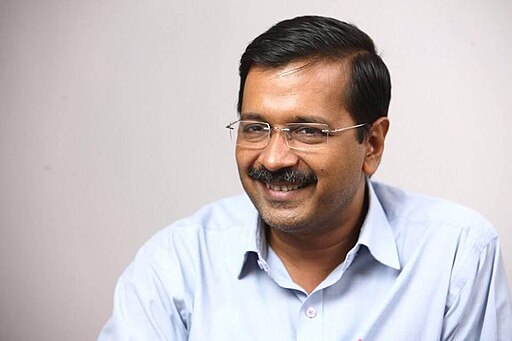Fresh from Tihar, Kejriwal’s release reshapes campaign dynamics for the Lok Sabha elections in Delhi and beyond
Arvind Kejriwal, the Chief Minister of Delhi, revitalized the Lok Sabha election campaign with a vibrant roadshow in South Delhi’s Mehrauli market. This marked his first public appearance since being granted interim bail by the Supreme Court. Kejriwal’s arrest in March over allegations related to a liquor policy case had previously shifted the Aam Aadmi Party’s (AAP) campaign focus to his incarceration.
The roadshow not only drew huge crowds but also significant political figures, including Punjab Chief Minister Bhagwant Mann. This event symbolizes a significant shift in AAP’s campaign narrative from victimization to vigorous engagement. Kejriwal, energized by the support, is now poised to take his campaign messages to other parts of Delhi and Punjab, emphasizing his fight against what he terms ‘dictatorship.’
Embed from Getty ImagesDespite his release, Kejriwal faces restrictions, including limitations on discussing the liquor policy case and visiting key government offices. However, these constraints have not dampened his or his party’s campaign spirits. With posters proclaiming ‘The Tiger is Back,’ AAP aims to capitalize on his charismatic leadership to galvanize support.
Meanwhile, the Bharatiya Janata Party (BJP), which has previously dominated Delhi’s Lok Sabha seats, is reportedly recalibrating its strategy in response to Kejriwal’s comeback. The BJP’s concerns are particularly acute in constituencies with high concentrations of low-income voters, who have historically shown strong support for AAP.
Analysis
Arvind Kejriwal’s release and subsequent re-entry into the campaign trail are not just pivotal for the AAP’s strategy but also carry broader implications for the Lok Sabha elections, especially in urban battlegrounds like Delhi. His ability to mobilize the AAP base and draw large crowds exemplifies his enduring appeal and poses a direct challenge to the BJP’s urban stronghold.
Political Perspective
Kejriwal’s arrest and the dramatic narrative of his judicial release play into a larger political drama that AAP has skillfully incorporated into its campaign rhetoric. The framing of Kejriwal as a ‘political prisoner’ fighting against an oppressive regime resonates with AAP’s core support base, and his release may rejuvenate the party’s prospects, particularly among disenfranchised voters.
Sociological Angle
The AAP’s focus on Kejriwal’s legal battles and his portrayal as a martyr of political conspiracy speaks volumes about the party’s strategy to tap into the collective sentiment of injustice among its electorate. This approach is likely to strengthen communal bonds within its support base, fostering a sense of solidarity and collective identity against perceived political victimization.
Economic Implications
The shift in campaign dynamics could influence economic policies, particularly in sectors like trade and public administration. AAP’s promise to fight against ‘dictatorship’ might translate into more aggressive pushes for transparency and reforms in government dealings, which could have long-term economic repercussions.
Local Impact
On a local scale, the change in AAP’s campaigning approach post-Kejriwal’s release might significantly impact voter turnout and engagement in the upcoming phases of the elections. This is particularly crucial in Delhi and Punjab, where AAP has its strongest foothold and where the narrative of political struggle and governance has a pronounced influence on the electorate’s decision-making.
Gender and Minority Considerations
While the current discourse around Kejriwal’s release predominantly revolves around political and legal narratives, there is an underlying layer regarding the representation of minorities and marginalized communities. AAP’s increased mobilization efforts might need to ensure these groups’ concerns are addressed in their policy proposals, making the campaign inclusive and reflective of the diverse demographic makeup of regions like Delhi
